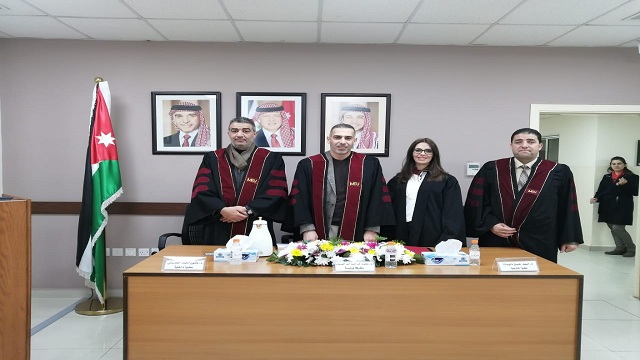
AMMAN – Researcher and Faculty of Law student Rana Abdullah Abu al-Wafa defended her thesis titled “The Civil Protection of Integrated Circuit Designs in the Jordanian Law”.
Ms. Abu al-Wafa discussed how integrated circuits are a primary element integral to the operation of the industrial and technology sectors. These small electronic circuits help power products that individual and community consumers regularly use.
According to Ms. Abu al-Wafa’s study, integrated circuits designs such as the one discussed in the thesis are subject to international intellectual property rights agreements such as the TRIPS Agreement and the Washington Treaty. She addressed how integrated circuit designs are also protected by national laws, which supports their economic value in international markets.
Ms. Abu al-Wafa found that any party who violates IP law through the unauthorised use of a protected design will only be held accountable after it is proven that the violator of the law knowingly and maliciously copied the designs of the original designer.
Based on her findings, Ms. Abu al-Wafa concluded that proving a violator’s malicious intent should not be required in settling such cases, especially in considering the difficulty of proving such a matter to the required degree. She believes that IP law procedures must be improved in order to encourage innovators to produce new designs and register their copyrights with the trust that their intellectual property will remain safe and profitable.
The thesis assessment committee presiding over this project included Prof. Mohammad Abu al-Haija, Ms. Abu al-Wafa’s supervisor and head of the committee, Dr. Ma’moun al-Hunaiti, the internal MEU evaluator, and Dr. Osayed Hasan Thuneibat from Mutah University as the external evaluator.
